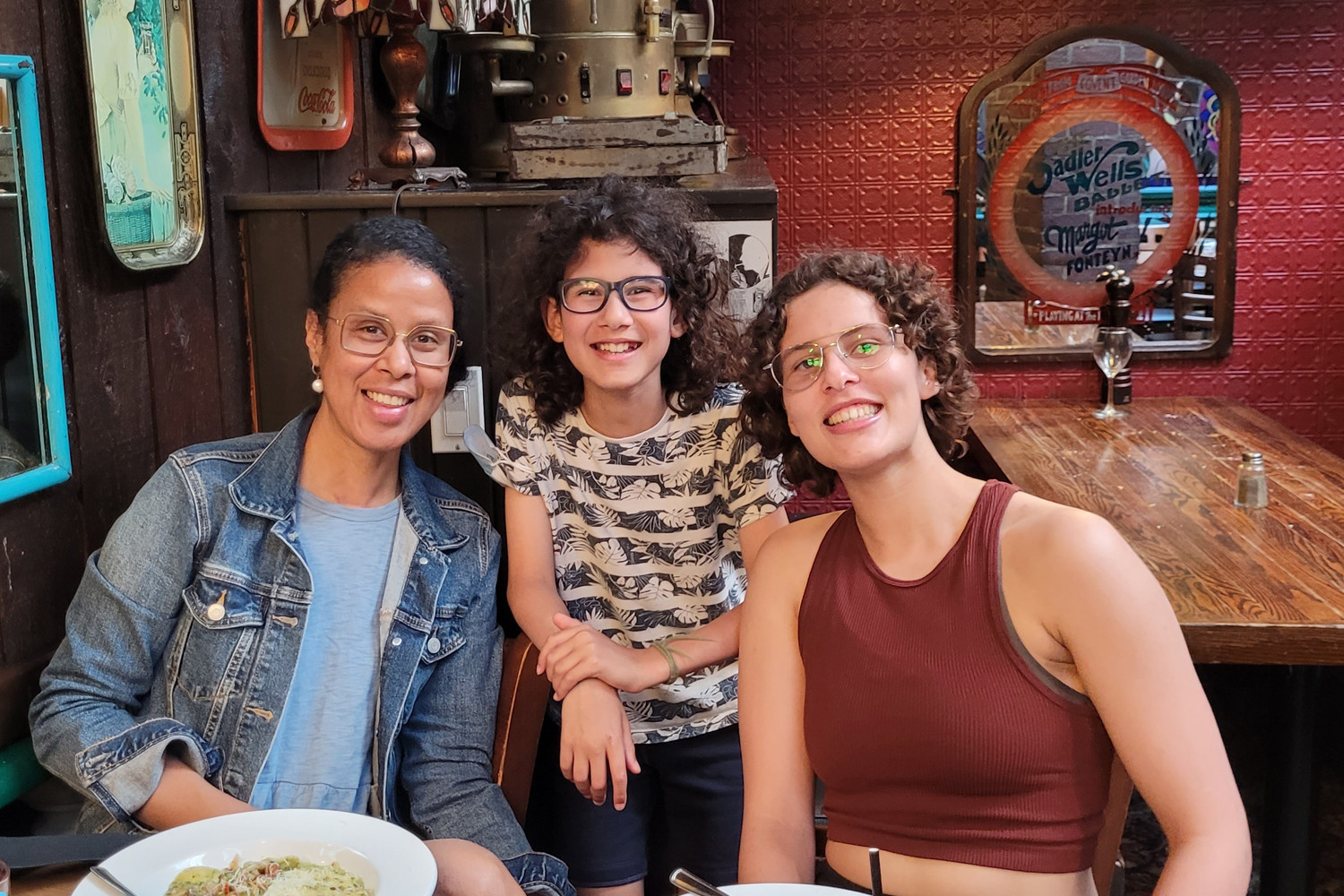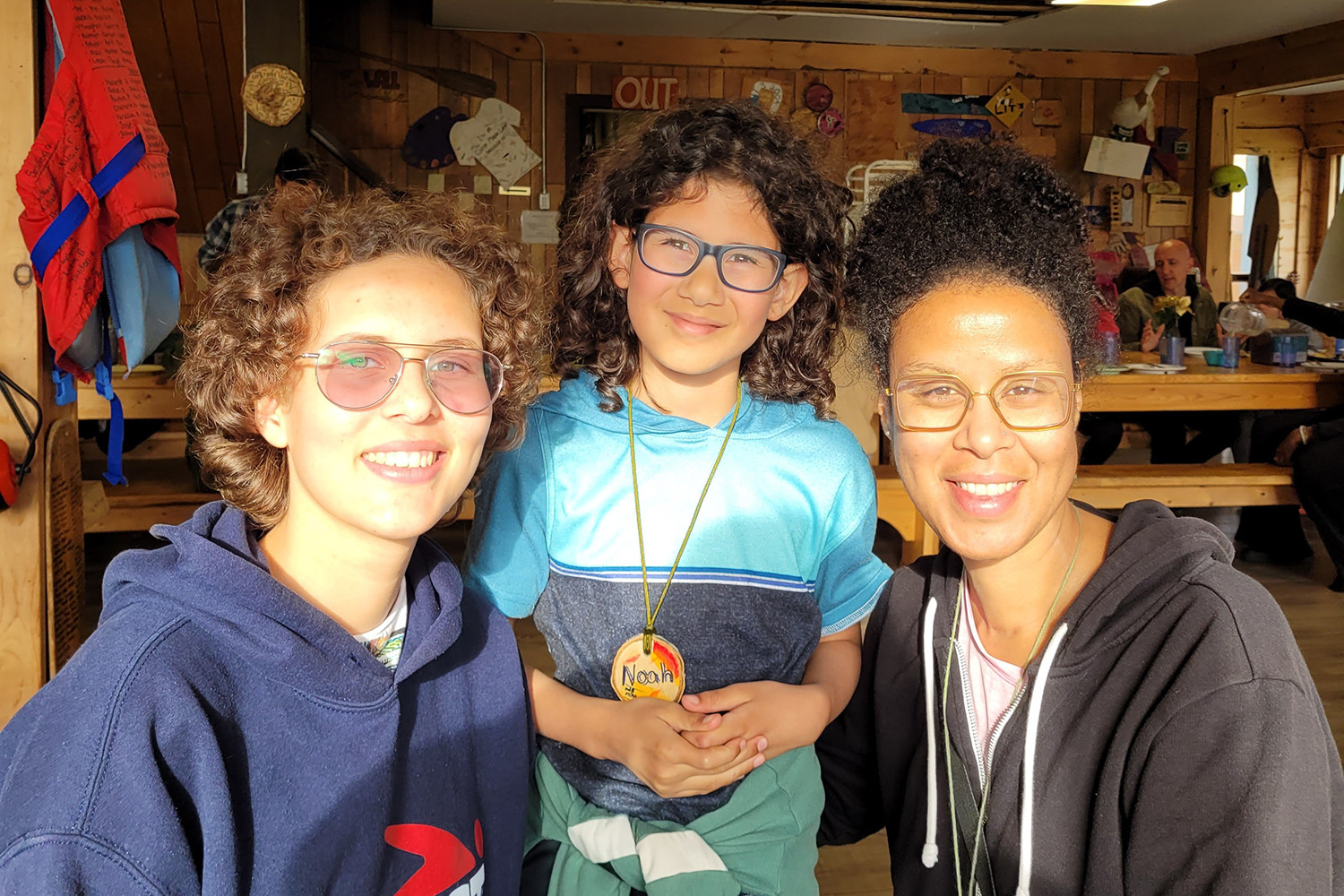When you hear the term “family affair,” it often conjures images of private matters, perhaps secrets or issues best kept within the household. But what if embracing the “Family Affair Meaning” could transform how we cope with life’s most daunting challenges, like a cancer diagnosis? Michelle Audoin, a content creator and educator from Toronto, Canada, discovered the profound power of this approach when faced with metastatic breast cancer. Instead of shielding her children from the harsh realities of her illness, Michelle chose openness, making cancer a shared experience within her family. Her story redefines “family affair meaning,” demonstrating how frank conversations and mutual support can strengthen family bonds and foster resilience in the face of adversity.
In 2017, as Michelle entered her 40s, juggling motherhood with a rewarding career, cancer unexpectedly became a “member” of her family. Initially diagnosed with stage 0 ductal carcinoma in situ (DCIS), considered a treatable form of breast cancer, Michelle felt relieved. Like many Canadians who admire Terry Fox’s legacy of hope and perseverance, she believed her diagnosis was manageable, a far cry from Fox’s ultimately fatal battle with osteogenic sarcoma. This initial optimism, however, was short-lived.
 Michelle and her children celebrating her birthday together at a family-favorite restaurant in Toronto
Michelle and her children celebrating her birthday together at a family-favorite restaurant in Toronto
The narrative took a dramatic turn when, after advocating for a bilateral mastectomy, Michelle received the devastating news: her breast cancer was stage IV, metastatic, and incurable. Compounding this shock was a simultaneous diagnosis of thyroid cancer. The stark contrast to her initial prognosis was jarring. Michelle vividly recalls the moment she had to explain to her daughter that her situation was now akin to Terry Fox’s – a battle with an incurable disease. The challenge then extended to her youngest child, a toddler, raising the question of how to include him in such a complex and emotionally heavy conversation.
This turning point propelled Michelle on a mission to redefine “family affair meaning” in the context of her cancer journey. Her approach was twofold: prioritizing her own well-being, drawing a parallel to the airplane safety instruction of securing your own oxygen mask first, and fostering open, age-appropriate dialogues about her cancer with her children. This unconventional approach stemmed from Michelle’s deep understanding of children’s inherent empathy. She recognized that despite their age, her children were perceptive to the changes in her life – the frequent medical appointments, the physical limitations post-mastectomy, like no longer being able to nurse or lift her youngest son. These changes, driven by cancer, were shaping their family dynamic, and Michelle believed in acknowledging this reality rather than concealing it.
 Michelle and her children at their first ever family camp experience for families affected by a cancer diagnosis in May 2024
Michelle and her children at their first ever family camp experience for families affected by a cancer diagnosis in May 2024
To practically implement this “family affair meaning” approach, Michelle made a conscious effort to inform her children about upcoming medical appointments. This simple act demystified hospital visits, framing them as routine aspects of her self-care rather than sources of anxiety or secrecy. She observed her younger son’s reaction to her cancer with insightful clarity. He processed it much like children approach puddles – with an immediate, immersive curiosity, jumping right in, fully engaged in the moment, and then moving on to the next thing. Their cancer conversations mirrored this pattern. As his language and comprehension developed, his questions about cancer grew more sophisticated. By addressing them openly and honestly, Michelle created “cancer puddles” – moments of focused conversation – that allowed him to engage with the topic, process it, and then return to his normal childhood activities.
Explaining metastatic cancer, including the possibility of a terminal outcome, became another facet of their family dialogues. While acknowledging the gravity of the situation, Michelle emphasized the proactive steps being taken by her medical team. This focus on ongoing care and treatment instilled a sense of hope and reassurance in her children, shifting their focus from fear of the unknown to trust in the support system surrounding their mother. They learned to appreciate that while some aspects of cancer were beyond their control, there was a dedicated team working to provide the best possible care.
Despite the significant challenges posed by cancer treatments, surgeries, and the ever-present “scanxiety,” Michelle witnesses the profound benefits of making cancer a “family affair.” She proudly observes her children’s remarkable growth in empathy and their proactive caring nature. They have become “little carers,” extending their compassionate support not only within their family but also to friends facing similar parental health crises. This, for Michelle, validates her decision to embrace openness. Had she chosen to shield her children from her cancer experience, she believes she would have inadvertently deprived them of the opportunity to develop such profound strength, empathy, and capacity for support.
For parents navigating the complexities of a cancer diagnosis while raising children, Michelle Audoin offers a powerful message: invite cancer into the family circle. By embracing a redefined “family affair meaning” – one characterized by open communication, shared experiences, and mutual support – families can navigate the turbulent waters of illness with greater resilience and emerge with stronger bonds. As Michelle’s journey poignantly illustrates, children are remarkably adaptable and empathetic. By including them in the conversation, parents not only honor their children’s emotional intelligence but also empower them to become compassionate caregivers and resilient individuals. Ultimately, making cancer a family affair, in its truest sense, can be a source of strength and unity for everyone involved.
